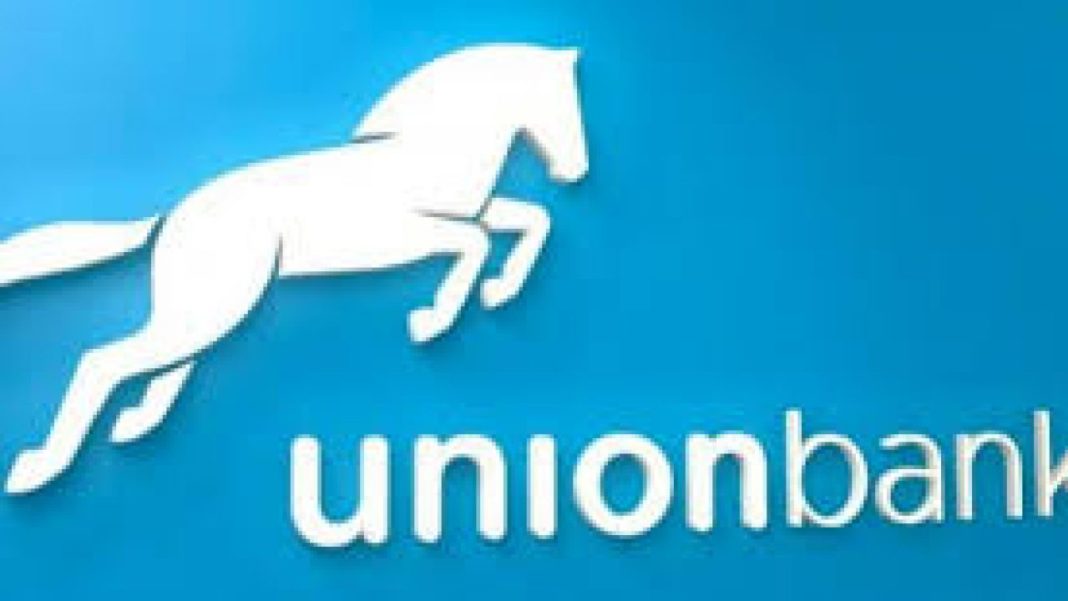- Amid Increase in Earnings Assets
The Union Bank of Nigeria Plc has announced its unaudited financial statements for the quarter ended September 30, 2020.
According to the report, the bank grew its gross revenue from N111.9 billion in 9 months of 2019 to N118.8 billion in the corresponding period of 2020, representing an increase of 6 per cent, driven largely by a boost in earning assets.
Similarly, its profit before tax rose from N15.5 billion in the preceding period to N15.9 billion in Q3 2020, representing 2 per cent rise.
The old generation bank also disclosed that Interest income was up by 1 one per cent at ₦85.4 billion from ₦84.9 billion in 9M 2019, while net interest income before impairment jumped by 15 per cent to ₦41.7 billion as against ₦36.4bn in 9M 2019, driven by increase in earnings assets and lower interest expense.
Other impressive aspects of the performance include non-interest income which recorded a positive trend by 23 per cent to ₦33.4 billion compared to ₦27.1 billion in 9M 2019, supported by increased trading income and asset revaluation gains; as net operating income was up 1 per cent from ₦68.7 billion in 9M 2019, to ₦69.3bn.
While operating expenses was relatively flat at ₦53.4 billion, from ₦53.2bn in 9M 2019, despite currency depreciation, inflationary pressures and unplanned Covid-19 related expenses, gross loans was up 14 per cent to ₦678.0 billion, from ₦595.3bn in Dec 2019, reflecting the impact of its targeted lending to the real sector.
Their Tier 1 bank stated that customer deposits rose 28 per cent to ₦1.1 trillion, from ₦886.3 billion in Dec 2019, reflecting gains on its investments in customer-led products and digital channels which resulted in the acquisition of over 600,000 new-to-bank customers and deepening of wallet share of existing customers.
Commenting on the results, Emeka Emuwa, CEO said:
“Notwithstanding the realities of a tougher operating environment arising from the ripple effects of the Covid-19 pandemic, the Bank delivered a 6 per cent growth in gross earnings from ₦111.9 billion in 9M 2019 to ₦118.8 billion in 9M 2020.
“In addition, net interest income before impairment rose by 15 per cent to ₦41.7 billion, while non-interest income grew by 23 per cent to ₦33.4 billion.
“We reached a major milestone as our customer deposits crossed the ₦1 trillion mark this quarter, growing by 28 per cent to ₦1.1 trillion compared to ₦886.3 billion at the end of 2019.
“This reflects increasing customer loyalty and our intense retail drive. Our customer acquisition strategy has been reinforced by the versatility of our digital platforms and channels which continue to drive customer satisfaction.
“We grew our loan book by 14% to ₦678.0 billion from ₦595.3 billion in December 2019 as we cautiously extended credit to the real sector. We will continue to explore bankable lending opportunities in the Nigerian economy guided by our robust risk management practices.
“The civil unrest which erupted in October and led to significant destruction of property and small businesses across the country, will have real impact on business and the operating environment; and even as restrictions have eased, Covid-19 also remains a present threat in our day to day operations.
“Heading into the final stretch in 2020, our overarching commitment is to the health and wellbeing of our employees and the safety of our customers.
“Showing up for our communities is also at the core of who we are and therefore we will work with our partners and through our corporate citizenship initiatives to support individuals, businesses and our communities where we operate as we begin to rebuild and heal as a country.”
Also speaking on the 9M 2020 numbers, Chief Financial Officer, Joe Mbulu said:
“Union Bank’s nine-month results reflect the strength and resilience of the business. Our profit before tax (PBT) grew by 2 per cent to N15.9 billion, from N15.5 billion in the previous period.
“Our operating expenses were relatively flat year-on-year at ₦53.4 billion, compared to ₦53.2 billion in 9M 2019 despite inflationary pressures on cost and higher regulatory costs. This reflects continuing focus on cost management.
“Our asset quality continues to improve with Non-Performing Loans (NPLs) down to 3.6 per cent from 5.8 per cent as at December 2019, supported by ongoing efforts to diversify our loan book to include viable businesses and households.
“Our Capital Adequacy Ratio remains robust at 19.5 per cent, well above the regulatory threshold.
“With the $40 million (USD) financing secured from the International Finance Corporation for on-lending to trade finance customers, we are continuing to expand our funding engagements with DFIs to support our strategic business initiatives.
“For the rest of the year, we remain focused on our business priorities in the face of the Covid-19 challenge and will continue to leverage increasing customer loyalty, stronger digital platforms and channels as well as solid risk management structure to deliver on our objectives.”


